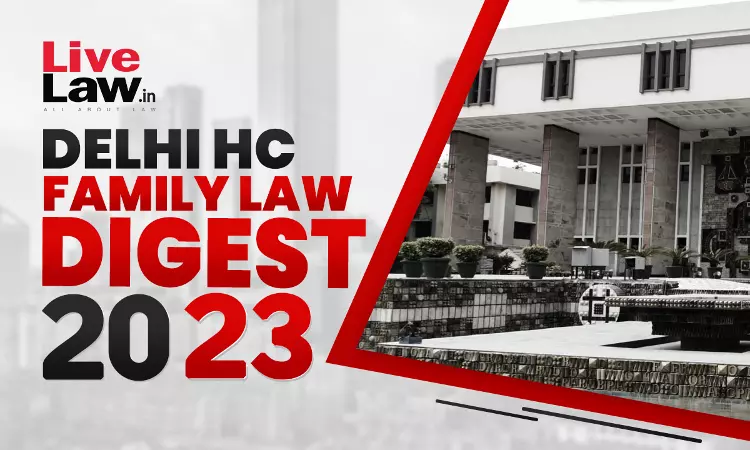- Home
- /
- High Courts
- /
- Delhi High Court
- /
- Delhi High Court Annual Family Law...
Delhi High Court Annual Family Law Digest 2023
Nupur Thapliyal
8 Jan 2024 2:41 PM IST
LiveLaw brings to you Delhi High Court Digest on Family law cases from the year 2023.Law Doesn't Permit Husband To Take Away Wife's Household Articles, Jewellery Without Her Consent And Knowledge: Delhi High Court Title: AKSHAY DHINGRA v. STATE (GOVT. OF NCT OF DELHI) Citation: 2023 LiveLaw (Del) 3 The Delhi High Court has observed that the law does not permit a husband to take...
Next Story



